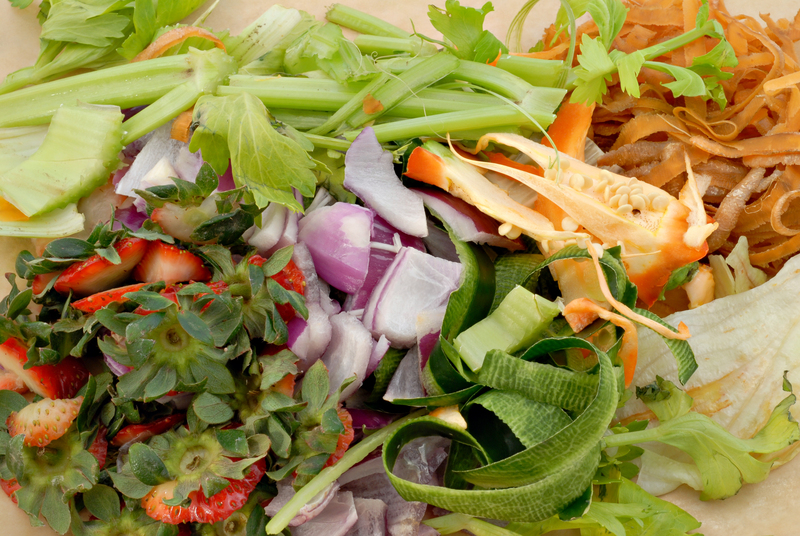Reduce Waste by Properly Disposing of Pots and Pans
Are you decluttering your kitchen and wondering what to do with old pots and pans? Properly disposing of cookware is crucial to reducing landfill waste and promoting a sustainable lifestyle. In this comprehensive article, we will explore various environmentally friendly ways to part with your old cookware, including recycling, repurposing, donating, and upcycling. Learn how to minimize waste and make a lasting impact on the environment when disposing of pots, pans, and other kitchen essentials.
Why Proper Cookware Disposal Matters
Every year, millions of tons of kitchenware waste enter our landfills. Pots and pans are often made of metals and other materials that persist in the environment for decades or even centuries. By understanding how to properly dispose of cookware, you can:
- Help reduce landfill waste
- Promote resource conservation through recycling
- Support local communities with donations
- Unleash your creativity with upcycling projects
- Protect the environment for future generations

What Are Pots and Pans Made Of?
Understanding what your old pans and pots are made of is the first step toward sustainable disposal. Most cookware contains a combination of materials such as:
- Stainless steel - Durable and recyclable
- Aluminum - Lightweight and valued for recycling
- Cast iron - Long-lasting, reusable, and recyclable
- Copper - Sought-after for metal recovery
- Nonstick coatings (Teflon/PTFE, ceramic) - Can complicate recycling but still manageable
- Enamel coatings - Glass-like finish that may affect recycling options
*Tip: Identify the type of material by looking for stamps or engravings on the cookware's base. This will be helpful when determining your disposal method.*
Best Ways to Dispose of Old Pots and Pans
Let's look at effective, eco-friendly ways to dispose of unwanted cookware and reduce household waste:
1. Recycling Your Old Cookware
Can you recycle pots and pans? The answer is usually yes--but with important caveats. Most metal cookware, including aluminum, stainless steel, copper, and cast iron, can be recycled, but not always through curbside recycling programs. Here's how you can approach recycling your old pans:
- Contact your local recycling center. Ask if they accept cookware, what materials are allowed, and if any preparation is required (such as removing handles or lids).
- Separate non-metal parts. Plastic handles or glass lids should typically be removed, as mixed materials can affect recyclability.
- Drop off at a scrap metal facility. Most communities have scrap metal dealers or recycling depots that accept used pots and pans.
- Prepare for recycling. Clean cookware of any debris and make sure coatings won't contaminate other recycling streams.
*Note: Nonstick pans with Teflon or ceramic surfaces may not be recyclable due to their coatings. Inquire about special recycling processes for these items.*
2. Donating Gently Used Cookware
If your pots and pans are still in usable condition, consider donating them to charity. This extends the life of your cookware and helps others in need. You can:
- Give to local shelters or food banks. Many charitable organizations accept donations of gently used kitchenware.
- Contact thrift shops. Goodwill, Salvation Army, and similar outlets often welcome donations of cookware.
- Offer on neighborhood sharing platforms. Apps like Freecycle, Facebook Marketplace, or Nextdoor connect you directly with people in your community.
*Pro Tip: Ensure items are clean and free from major damage before donating. Some organizations may not accept nonstick pans due to safety regulations, so always ask first.*
3. Repurposing and Upcycling Old Pans
Before you throw out your pots and pans, imagine what else they could become! Upcycling is a creative and practical way to keep cookware out of landfills by giving it a new purpose. Here are some unique upcycling ideas:
- Planters for indoor or outdoor gardens
- Creative wall art - Paint and mount them for vintage decor
- Bird feeders or bird baths
- Organizers - For craft supplies, tools, or toys
- Candle holders or rustic serving trays
With a little imagination, your old pans can become treasured household items once again!
How to Recycle Different Types of Cookware
Let's break down recycling options by material to help you properly dispose of various types of pots and pans:
Recycling Stainless Steel Pots and Pans
Stainless steel is highly recyclable. Remove any non-metal parts and take them to a scrap metal facility for processing. Many centers offer compensation for stainless steel items by weight.
Recycling Aluminum Cookware
Aluminum is another sought-after metal for recycling. Separate pure aluminum pans from those with plastic handles, nonstick coatings, or glass lids. Pure aluminum can usually be dropped off directly at scrap metal centers. For coated aluminum, contact your municipal recycling facility for guidance.
Casting Off Cast Iron Cookware
Cast iron pans are nearly indestructible and rarely need to be thrown out. If they're too damaged for use, recycle them at a metal scrap yard. Alternatively, restore rusty pans and pass them on to friends, family, or charities.
Disposing of Copper Pots
Copper is particularly valued at recycling centers. Remove any non-copper parts and seek out specialized facilities or dealers who purchase copper materials.
What About Nonstick and Enameled Cookware?
Nonstick surfaces present challenges. Teflon-coated cookware often cannot be recycled conventionally, but some manufacturers and recycling programs accept them via mail-in services. For enameled cast iron, check with your local recycling center--some accept enameled metals, while others may not.
Special Note: Manufacturer Take-back and Trade-in Programs
Some cookware brands offer take-back or trade-in programs to encourage responsible disposal and recycling:
- Return-to-manufacturer recycling - Leading brands like Calphalon, Le Creuset, and GreenPan have begun offering cookware recycling services. Check their websites or customer support for details.
- Retailer trade-in events - Stores such as Bed Bath & Beyond, Williams Sonoma, or Sur La Table occasionally offer trade-in promotions for new cookware purchases. Your old pans may be recycled or donated by the retailer.
By taking advantage of these programs, you help reduce waste from pots and pans while often receiving a discount on new cookware!
Common Mistakes to Avoid When Disposing of Cookware
It's easy to inadvertently contribute to kitchen waste. Avoid these common mistakes for an eco-friendlier outcome:
- Tossing pots and pans into general waste. Most cookware contains valuable materials that should be recycled or reused.
- Leaving nonstick or plastic parts attached. Mixed materials may contaminate recycling streams and lower the value of metals.
- Forgetting about donation or reuse. Many pans still have years of life left, especially with minor refurbishing.
- Neglecting to check local recycling rules. Programs and accepted materials vary greatly by location--always check first!
The Environmental Impact of Cookware Disposal
Every time a pot or pan is improperly discarded, it adds to the growing problem of landfill overuse. Metals do eventually rust and break down, but this process can take centuries--locking away valuable resources and polluting local soils. Nonstick coatings, in particular, can leach harmful chemicals into the environment, putting ecosystems and human health at risk.
By learning how to dispose of cookware responsibly, you help conserve natural resources, support recycling industries, and reduce the harmful impact of waste.
Tips for Prolonging the Life of Your Pots and Pans
Reducing waste starts not just with disposal, but by caring for your cookware to maximize its lifespan. Here are a few maintenance tips:
- Hand-wash nonstick or coated pans to avoid surface damage
- Season cast iron pans regularly to prevent rust and sticking
- Avoid metal utensils on delicate surfaces
- Store correctly to prevent warping or chipping
- Follow manufacturer instructions for cleaning and care
With good care, your cookware can last for decades, drastically reducing the need for frequent replacement and waste.

FAQs about Reducing Waste When Disposing of Pots and Pans
-
Q: Can I put old pots and pans in my blue recycling bin?
A: Most municipal curbside recycling programs don't accept cookware due to mixed materials. Check with your local recycling center or take to a scrap metal facility. -
Q: Is there a way to recycle nonstick pans?
A: Some specialty recycling programs and manufacturers accept nonstick cookware. Contact the manufacturer or research mail-in curbside recycling programs for details. -
Q: What if I can't recycle or donate my pots and pans?
A: Get creative and repurpose old pans as planters, organizers, or art. Only dispose of cookware in landfill as a last resort. -
Q: How do I know what my pans are made of?
A: Check for stamps, engravings, or stickers on the pan's base, or refer to manufacturer instructions or websites.
Conclusion: Start Reducing Waste Today
Properly disposing of pots and pans is a crucial step in reducing kitchen and household waste. By recycling metals, donating reusable items, and upcycling creatively, you help protect our planet while supporting local communities.
Make a difference today--before throwing away your next piece of cookware, consider these eco-friendly alternatives. Remember, every action counts in the journey towards a zero-waste kitchen. Let's cook up a cleaner, greener future together!
Key Takeaways for Sustainable Cookware Disposal
- Recycle cookware at scrap metal centers--separate nonmetal parts first
- Donate usable pots and pans to charities, shelters, or thrift stores
- Repurpose old cookware as planters, art, organizers, and more
- Look for manufacturer or retailer recycling programs or trade-in events
- Care for your cookware to maximize lifespan and minimize waste
For more advice on sustainable kitchen habits and environmental tips, stay tuned to our blog and join the movement to reduce waste by properly disposing of pots and pans!
